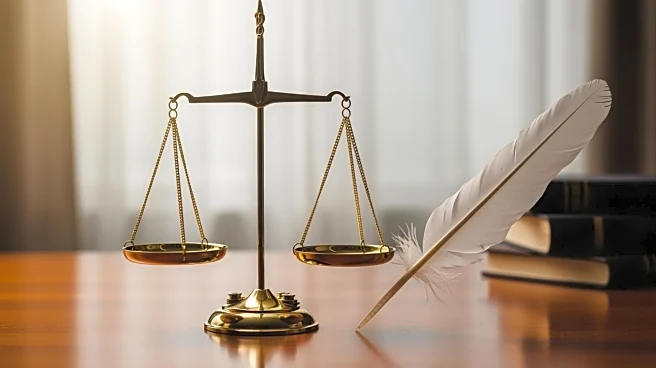What's Happening?
U.S. District Court Judge Sara L. Ellis has issued a temporary restraining order preventing federal agents, including those from U.S. Immigration and Customs Enforcement (ICE), from using tear gas, pepper
spray, and other weapons against journalists and peaceful protesters in Illinois. This order comes in response to a lawsuit filed by Chicago-area media and individual protesters, aiming to protect First Amendment rights amidst aggressive federal actions. The ruling prohibits federal agents from dispersing, arresting, or using physical force against journalists unless they are committing crimes. This legal action highlights growing concerns over the militarized federal response to immigration protests in Chicago, which has been criticized for its impact on free speech and press freedom.
Why It's Important?
The ruling is significant as it underscores the tension between federal authorities and local jurisdictions over immigration enforcement and civil liberties. The decision is a victory for journalists and free speech advocates, emphasizing the importance of protecting constitutional rights in the face of federal crackdowns. The case reflects broader national debates about the role of federal forces in local law enforcement and the protection of civil liberties. The outcome could influence future legal actions and policies regarding the treatment of journalists and protesters, potentially setting a precedent for other cities facing similar federal interventions.
What's Next?
Judge Ellis has expressed concern over potential violations of her order and has mandated that federal agents wear body cameras. Chicago ICE Field Office Director Russell Hott is required to appear in court to address these concerns. The ongoing legal proceedings will likely continue to draw attention to the federal government's immigration policies and their implementation in urban areas. Local officials, including Illinois Governor JB Pritzker and Chicago Mayor Brandon Johnson, are expected to continue advocating for the protection of civil liberties and may pursue further legal or political actions to limit federal intervention.
Beyond the Headlines
The case highlights the ethical and legal challenges of balancing national security and immigration enforcement with the protection of civil liberties. It raises questions about the appropriate use of federal power in local jurisdictions and the potential chilling effect on free speech and press freedom. The situation in Chicago may prompt broader discussions about the role of the media in documenting government actions and the importance of safeguarding journalistic integrity in a democratic society.











